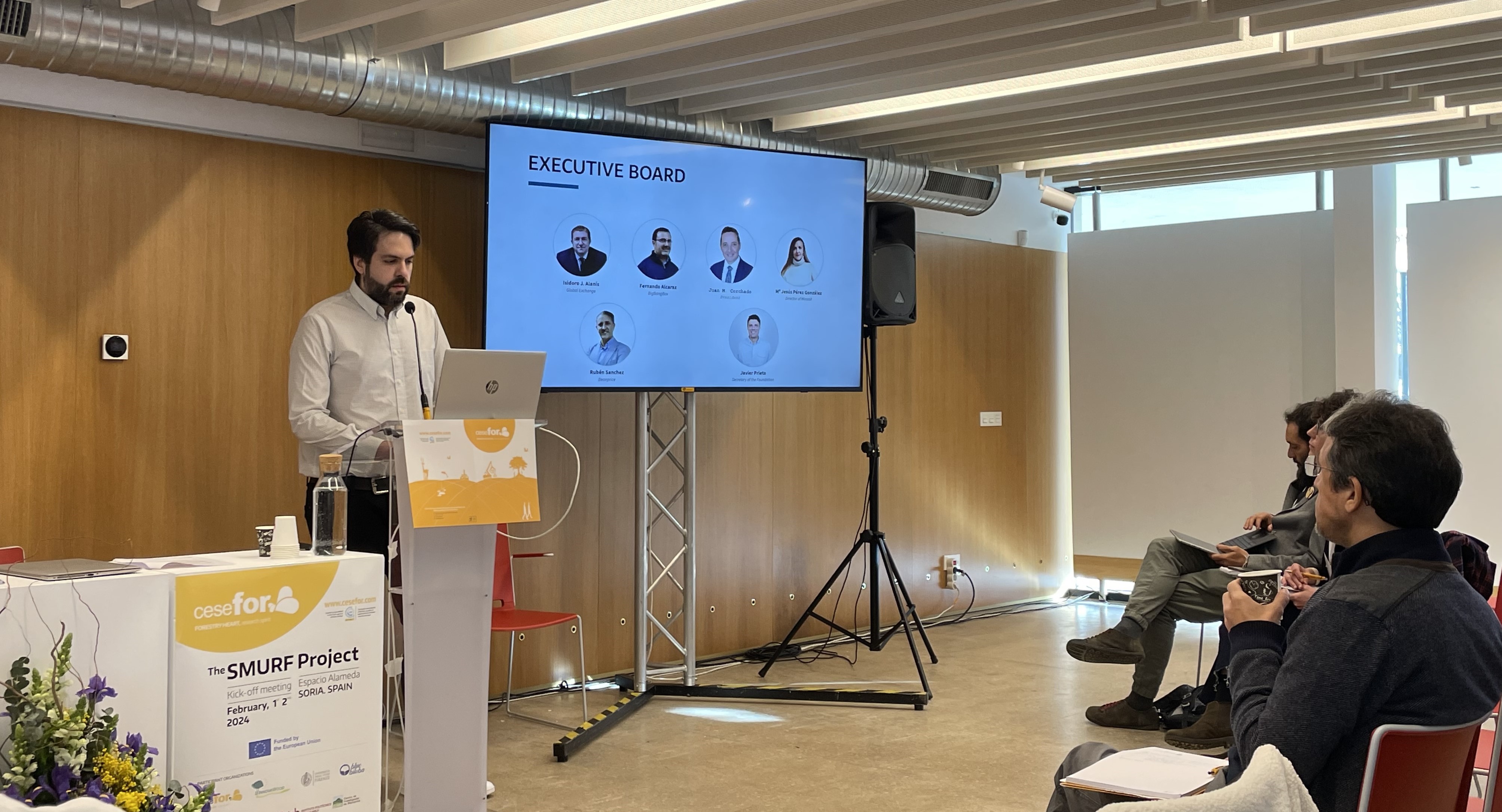The SMURF project to promote the profitability of small forest holdings across Europe
European researchers will work over the next four years to enable 20 million forest owners across Europe to generate economic activity in their forests, while managing them to conserve and adapt to climate change. Members of the AIR Institute are participating in the SMURF project (Sustainable Management Models and Value Chains for Small Forests), which held its kick-off meeting in Soria on 1 and 2 February, attended by all the members of the consortium. The project will run for 48 months, until December 2028.
The project arose because of the large number of forests in the European Union that belong to small landowners facing the difficulty of managing them and making their forests profitable, which leads to their abandonment. One of the desired outcomes of the project is not only to avoid this, but also to create new business models that involve the entire forestry value chain and create jobs in rural areas thanks to the economic activity generated in the forests.
The SMURF project will develop new European-wide organisational and business models based on closer-to-nature forestry practices, which will emphasise the valorisation of forest products; provide essential resources, such as training programmes, digital tools and support structures, to empower forest owners and stakeholders; and contribute to the establishment of standardised policies and payment systems at the regional, national and European level.
Lines of action
The project has seven lines of action. One of them consists of characterising forest owners. At the kick-off meeting, the project coordinator, Álvaro Picardo, said that " One important example is the work carried out by the Soria Forestry Association (ASFOSO), recovering the Montes de Socios; although there are also forests belonging to local entities or owned by families or industries", and he highlighted the importance of understanding the different forms of forest ownership for the success of the project.

The other objective is to analyse the legal frameworks across Europe, which are very different from one another. In addition, new business models will be developed around non-timber resources such as mushrooms, resin or game, and even systems of payment for environmental services will be developed, in other words, "an integrated European system of carbon credits to contribute to the fight against climate change, where the forestry sector is the one that can contribute the most", according to Picardo.
Finally, "and perhaps the most important thing, is the transfer and extension of these solutions, which has to be done hand in hand with local, regional and state administrations with the European Union as a whole", emphasised the project coordinator.
All these lines of work will contribute to improving knowledge and skills in forest management for the owners of small properties. According to the European Forest Institute (EFI-European Forest Institute) in general, the size of forest holdings in Europe ranges from less than one hectare to several million hectares. However, almost 90% of private forest holdings are less than 10 hectares, and many are even smaller.
The consortium is formed by ten partners from six different countries and has been funded under HORIZON-CL6-2023-CIRCBIO-01 by the European Union, specifically by the European Research Executive Agency (REA), with a total contribution of 5,423,471.25€.